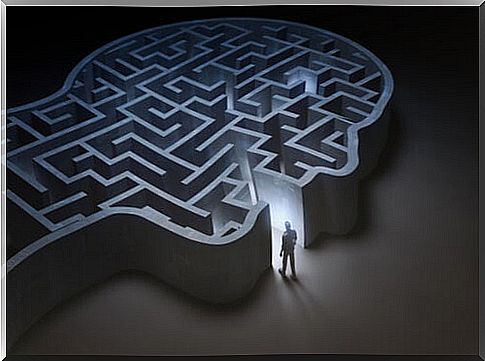Our Attitude To Problems Defines Us: Reactive And Proactive

Our attitude to problems is a clear reflection of our personality. Sometimes it is of little importance that they offer us resources, advice and strategies to deal with any difficulty. If our character is defined by impulsivity, by acting before thinking or by that resistance where we obsessively obsess that nothing is going to go well, it will be very difficult to move towards any resolution.
The writer and journalist Henry-Louis Mencken used to say that every problem has an easy solution, a plausible one and a clearly wrong one. Becoming that person capable of seeing in any challenge a simple, original and beneficial way out, requires above all, making several changes in ourselves. The key is that something like this is not achieved overnight.
To understand it better, we will give an example. We have a person who suffers from high stress at work. He feels undervalued and also suffers from a clear, very exhausting moobing situation . Even so, he continues to go to work every day on time. His environment, his family and friends advise him to leave it and to choose another job; however, he doesn’t, he resists.
There are situations in which advice is useless. Good intentions or offering valuable strategies for us to achieve well-being do not matter. As Albert Ellis said, change must start with oneself and something like this requires having to face each other, before one’s thoughts, one’s own personality, beliefs and that internal universe that is often so chaotic, complex and even neglected.

Our attitude to problems is everything
Problems are like a labyrinth where one can lose oneself or take it on as a challenge to face in order to prove oneself, to learn and generate a change that benefits us. In these cases, there is an almost magical component that is everything: our attitude. However, in most cases and, almost without knowing it, we make use of clearly dysfunctional attitudes.
In the first place, to understand the impact of this psychological dimension in our daily lives, it is necessary to know “what are attitudes made of”. Thus, in a study carried out at the University of Massachusetts, by Dr. Icek Ajten, reveals that few areas of our human nature can become so complex.
An attitude is nourished by our values, the experiences we have had and the lessons learned. Likewise, it should be borne in mind that they have the color of emotions such as our deepest fears and also, of cognitive processes such as thoughts, biases and limiting ideas. Attitudes, therefore, can be the best impulse to overcome obstacles or an anchor that leaves us trapped on the island of unhappiness.
Reactive people, a bad strategy to deal with problems
“I am not perfect … but I am enough” said the psychotherapist and promoter of humanistic psychology Carl Rogers. It is a great truth, there is no doubt, understanding that we are not perfect but that, even so, we can be our best allies is always a good starting point. However, the irony of the subject is that in many cases we act as our worst enemies.
Our attitude to problems is an example of this. There are those who assume almost without realizing it, a reactive position before them. That is to say, it acts (reacts) almost like that leaf that the wind attacks from one side to the other and without control. One limits oneself to receiving the blows that life brings passively, without anticipating them or even without applying coping strategies.
Likewise, the person who adopts this type of attitude is defined in turn by the following characteristics:
- They allow themselves to be overwhelmed by their emotions. It is assuming that a problem is a dead end, and something like that generates frustration, anger and helplessness. Those emotions end up permeating everything, affecting any other vital and relational sphere.
- Taking a reactive attitude to problems is typical of an inflexible mind. They are people who apply tunnel vision to each difficulty, they only see the problem and feel unable to pay attention to options to solve it.

Being proactive, our best attitude to problems
Proactivity is our best attitude to problems. It is a great power that will allow us to have more control over our lives, anticipate difficulties and draw a more creative present and future, according to our needs. Now, what does it really mean to be proactive? How can we sculpt, shape, or drive a proactive attitude?
- Proactivity is an attitude with which we can anticipate problems in order to react to them.
- It is activating a mentality capable of detecting small day-to-day problems in order to solve them as soon as possible. It is to understand that what worries, bothers or worries today cannot be left for tomorrow.
- The attitude towards problems from a proactive perspective implies accepting that every problem is a good learning opportunity. It is to see the difficulties from a calm emotional state, without deriving in that anguish that blocks.
- Being proactive involves developing a personality where you know yourself, appreciate yourself, and trust your potential. It is knowing that you deserve the best in life, having a mentality centered on the here and now and at the same time, trusting in a better future.
- Our attitude to problems must always be positive, disciplined and flexible. It is not being afraid of changes, learning from mistakes and knowing how to draw up plans to prevent those failures from happening again.
To conclude, as Henry Ford said, we people have a subtle tendency to spend an enormous amount of time and energy avoiding problems. We forget, perhaps, that the key is not to “avoid” them but to know how to deal with them. If we change our attitude towards them, if we apply a more proactive approach, we will lead our life and we will feel much better.









